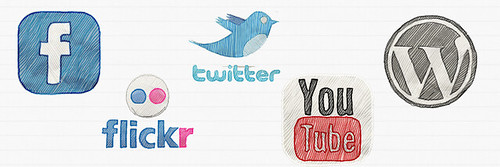
Since the 1970s, human society has come to the Information age with the significant development of the internet and rapid shift from the traditional industrial economy to an information-based economy, the historical period is also known as the Digital age or New Media Age. Media platform is one of the most iconic development in the Information Age which approaches to daily lives of over 3.8 billion social media users (Dean, 2021). By using media platforms, users are connected by the internet and able to share and receive information at much faster speed than the traditional media such as the newspaper and mails. However, recently there have been more voices questioning the regulation of the platforms especially on the aspect of information moderation. People are concerning about various negative impacts might brought due to the lack of regulation of the platforms such as the damage to personal privacy and misinformation.
This article is going to firstly demonstrate some of the examples of issues raised along with the information moderation of platforms, then discuss whether government regulation should be enforced on the regulation of media platforms combining the Australian media regulatory body.
Issues of Concerns

The development of information moderation of platforms has brought its users with great benefits, such as the convenience, efficiency, and effectiveness of information transformation. However, along with more frequent use of platforms and more reliance of using, various issues and concerns are raised, the main issues include:
1. Loss of security and privacy, such as the information leak; 2. Dataveillance, which means platforms monitoring its users based on their data; 3. The reliability and transparency of algorithms; 4. Misinformation and Disinformation; 5. Hate speech and online abuse; 6. Impacts on cultural production, media and creative industries; 7. Information monopolies, infrastructure platform environment is heavily dominated by five technology giants which are Alphabet-Google, Facebook, Apple, Amazon, and Microsoft (Van Dijck & Poell & de Waal, 2018). It would be argued that those negative impacts are unavoidable to users since the most individuals and the society are more and more relying on the use of platforms, and it has become a way of life for the public.
On April 3, 2021, it was reported that the personal information of over 533 million Facebook users were leaked (Holmes, 2021). The users range from 106 countries which include over 32 million records on users in the US, 11 million on users in the UK, and 6 million on users in India. The data including full name, phone number, address and other personal details were posted on a low-level hacker forum. It was warned by the security researchers that that information could be used by hackers in illegal impersonation and fraud. Despite the leak was an unethical and unlawful incident, what really surprises people is that the database of one of the largest social platforms in the world was hacked by some low-level hackers. According to the Facebook spokesman that the leak was caused by a vulnerability that the company patched in 2019. However, it was found that there was a similar leak happened in 2018, which means that the personal information stored in Facebook database is not completely safe and there could be potential harm to privacy.
Censorship
Censorship is another controversial topic in relating to the recent concerns against platform regulation. Censorship could be described as the suppression of speech as well as publication operated by government or specific organizations, it was commonly used in different forms of media such as books, newspaper, or internet platforms. Content such as hate speech, adult nudity and sextual activity, or cruel and incentives from disseminating on the platforms. Users are concerning about the about the accountability and transparency of platform censorship since it has significant impacts on what content are exposed to them, or their children. However, Dijck argues that the terms of using, platforms policies or user agreements, which are usually showed to users before using, are very difficult to read and understand (Van Dijck & Poell & de Waal, 2018). The process of moderating information is mostly operated by the platform solely, it may cause the information asymmetry and further damage to the customers’ benefits.
A recent example of the issue caused by the information moderation of the platform would be that the nude photo of Claudia Conway was posted by her mother on Twitter’s “Fleets,” but the photo stayed for 24 hours until it was automatically deleted by the system (Chung, 2021). Kellyanne Conway, who was the former White House advisor, was visited by the police since she posted a topless photo of her 16-year-old daughter on Twitter’s new feature “Fleets.” Kellyanne has over 338 million followers on her Twitter account and the photo was viewed and retweeted in public for 24 hours. Twitter did not stop the posting of the photo at the beginning, and not deleting or censoring it from disseminating, until it was automatically deleted like every other fleets.
Kellyanne Conway Accused of Posting Topless Photo of Her 16-Year-Old Daughter on Twitter https://t.co/NXRMrlxPHD
— Variety (@Variety) January 26, 2021
After the incident, Kellyanne has become the major target of blames, for keeping her daughter’s nude photo and posting it, However, another important aspect to be noticed is that the incompleteness of the censorship functions or policies of media platform could cause extremely serious harm to its users. In this case, the privacy and reputation of 16-year-old teenage girl was harmed heavily. However, Twitter claimed that it remains unclear why the photo was not censored, and it takes no responsibility of the damage. It could be argued that there should be enhancement and more restricted regulation against the process of information moderation of the platforms since it would bring significant impacts to people’s lives.
Why more government regulation should be applied?
In recent years, there has been calls for regulation of platforms by the government where self-regulation is seen to fail. According to the Australian Law Reform Commission, the media regulation system consists with four parts which are Self-regulation, Quasi-regulation, Co-regulation, and government regulation (Australian Law Reform Commission, 2012). In most cases, platforms are regulated by themselves, followed the codes developed by industry regulators, such as the Media Entertainment and the Arts Association, Public Relations Institute of Australia, and Australian Press Council. Codes could be described as ethical guidance developed by organization to affect actions of its members during media practice.
However, ethical code has the nature of voluntary, it sometimes lacks effectiveness during regulation since it does not require mandatory actions of its followers. It was mentioned by the Australian Ethics Review Committee that ‘The code alone can not ensure ethical journalism, only journalists can (Australian Ethics Review Committee, 1997).’ In the previous case of Kellyanne posting the topless photo of her daughter, Twitter neither prevented the upload of the photo, nor deleted the photo effectively, meanwhile taking no responsibility of causing such damage to the girl. It would be argued that greater regulation on the information moderation and censorship of the platform might be useful to prevent such incidents. The government should play a greater role during the regulation of the platform.
Conclusion
In conclusion, since individuals and most parts of the society will be more relying on the use of digital platforms, imperfect regulation and management of platforms might raise serious issues and potential harm to its users. The government and its regulatory bodies should be more engaged in the regulation of platforms especially for process of content moderation.

This work is licensed under a Creative Commons Attribution-NonCommercial 4.0 International License.<a rel=”license” href=”http://creativecommons.org/licenses/by-nc/4.0/”><img alt=”Creative Commons License” style=”border-width:0″ src=”https://i.creativecommons.org/l/by-nc/4.0/88×31.png” /></a><br />This work is licensed under a <a rel=”license” href=”http://creativecommons.org/licenses/by-nc/4.0/”>Creative Commons Attribution-NonCommercial 4.0 International License</a>.
Reference List:
Australian Law Reform Commission. (2012). 13. Codes and Co-regulation. https://www.alrc.gov.au/wp-content/uploads/2019/08/13_codes_and_co-regulation.pdf
Chung, F. (2021, January 27). Kellyanne Conway posts daughter Claudia Conway’s nude photo. News.com.au. https://www.news.com.au/world/north-america/us-politics/kellyanne-conway-posts-daughter-claudia-conways-nude-photo/news-story/bb7581fc7bca70b10cab65111d47dc63
Dean, B. (2021, April 26). Social Network Usage & Growth Statistics: How Many People Use Social Media in 2021? Backlinko. https://backlinko.com/social-media-users
Ethics Review Committee, Media Entertainment and Arts Alliance, Australian Journalists’ Association Section. (1997). Ethics in journalism. Carlton, Vic. : Melbourne University Press.
Holmes, A. (2021, April 3). 533 million Facebook users’ phone numbers and personal data have been leaked online. Business Insider. Australia. https://www.businessinsider.com.au/stolen-data-of-533-million-facebook-users-leaked-online-2021-4?r=US&IR=T
Van Dijck, J., Poell, T. & de Waal, M. (2018) The Platform Society. Oxford: Oxford University Press, pp. 5-32 (‘The Platform Society as a Contested Concept’).